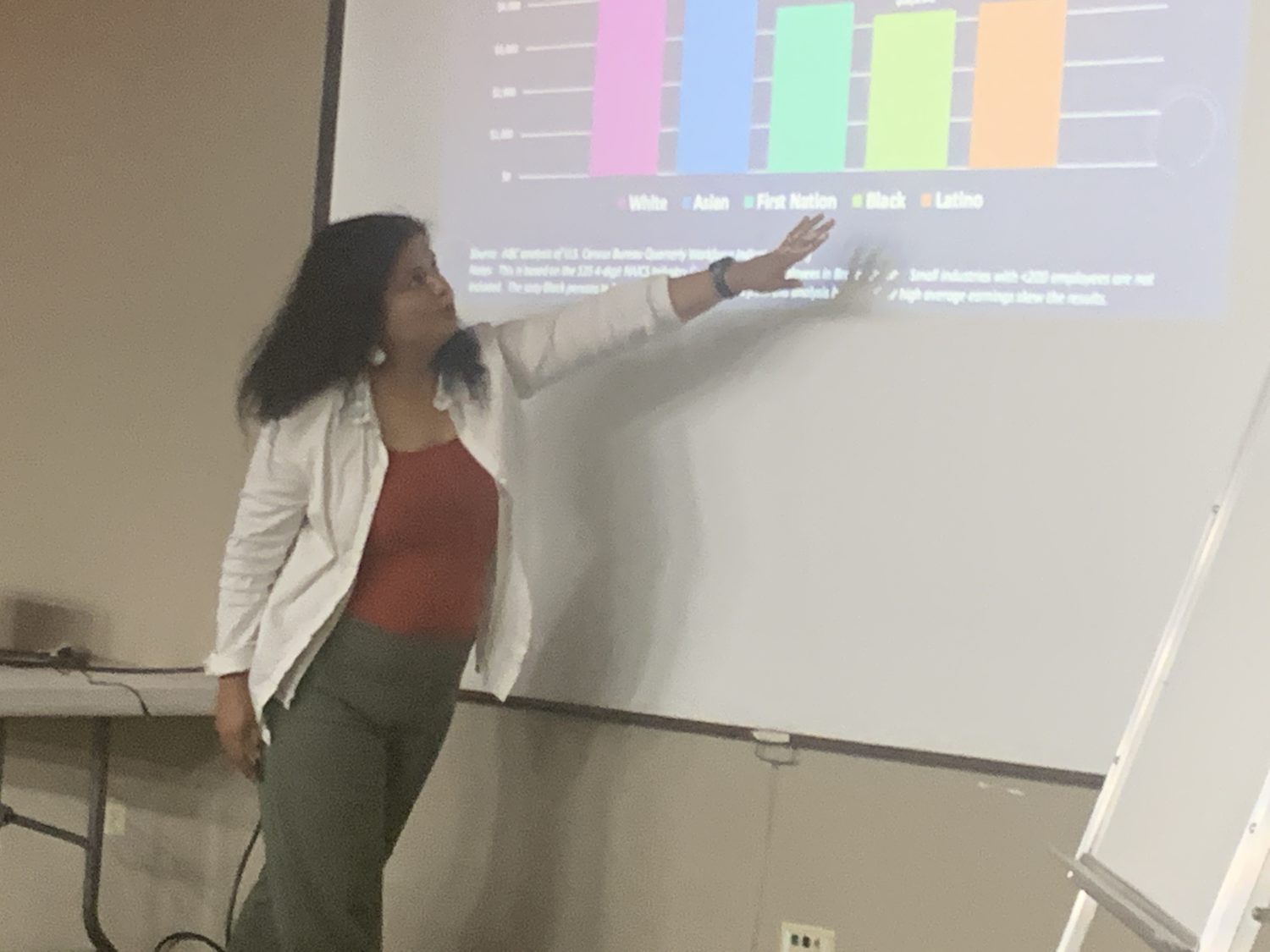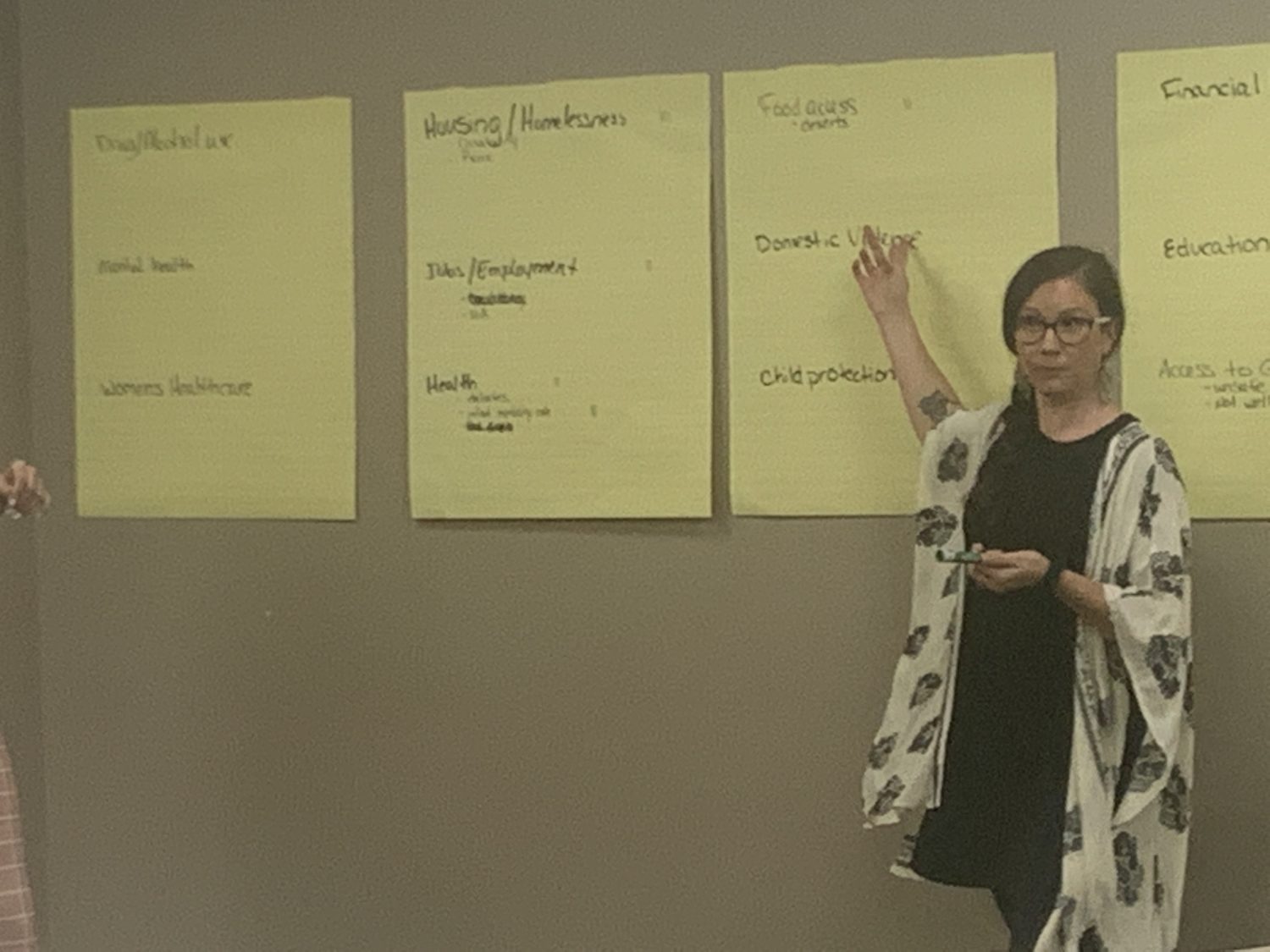

Brown County Racial Equity Ad-Hoc Committee Chair Pooja Bambha-Arora said systemic change has to come from the top down — and has to be informed by stories of real experiences in addition to data.
That was the takeaway from her presentation at the committee’s fourth monthly meeting on Monday.
The meeting began with an exercise led by committee secretary Louise Padron in which committee members named areas of racial disparity in Brown County, such as education, incarceration, health care, infant mortality, and others. Members then identified existing services and organizations in place to address those disparities, and identified their own connections to those services and organizations.
“We’re going to start to identify what is within Brown County’s capacity to help to alleviate some of these adversities,” Padron said. “Taking a look at all these adversities that disproportionately affect people of color, and all of the services — and this isn’t even a comprehensive list — all of the services that are designed to mediate or alleviate some of these adversities, we are still very much seeing it here in Brown County.”

“There can be all these nonprofits working and we can burden them with all the work we have to do, but if we do not establish this work in terms of policy, we cannot make a difference,’ Bambha-Arora said. “It has to come from leadership. Is our leadership prepared to handle all that work? … We have to inform policy here and kind of encourage that in the (County) Board. If it doesn’t come from top down, we cannot just make it happen. The leadership has to be there. The political will has to be there.”
Bambha-Arora then presented data from the Wisconsin Department of Health Services and other sources, but first stated the case for why the data was important.
“We cannot disconnect ourselves from the past,” she said. “With what happened with slavery, with the taking of Native land. Sometimes we just focus on what’s happening right now, losing the larger context of all the problems that we are facing over the last two or three years.”
Bambha-Arora shared state data indicating that the average age of death for white people in Brown County is 75, but for Asian American people it’s 61, for Indigenous people it’s 59, for Black people it’s 45 and for Latinos it’s 44.
“This was very startling for us to understand that in Brown County, people of color have shorter lives in Brown County, which kind of validated the need of this committee,” she said.
Committee members also said their work had to be guided by real-life experience, not just data.
“How is this actually grounded in lived experiences with the collective experience?” Bambha-Arora said. “I do personally feel that we can talk all about data, but if we don’t have stories and lived experiences, if people come and tell us exactly, it really adds more value.”
Committee meetings, which occur on the fourth Monday of each month, include a period for public comment when people could bring and share their own experiences with racism and disparities. However, recognizing that not everyone would be comfortable in such a forum, members of the County Board encouraged members of the community to email the board to share their experiences in Brown County.

In addition to the committee meetings, Bambha-Arora said she’s held several one-on-one meetings with community stakeholders, including nonprofit leaders, to get input on their perceptions of the challenges in racial disparities. Further, committee members will meet with County department heads to “understand how do we integrate this lens of diversity, equity and inclusion across departments so we can put that in our advisory report,” Bambha-Arora said.
She said she hoped the advisory report would be complete and presented to the County Board by the end of the year. The committee is set to meet through the spring of 2023. The next committee meeting will take place 5-7 pm on Monday, August 23, at the Brown County Central Library.



